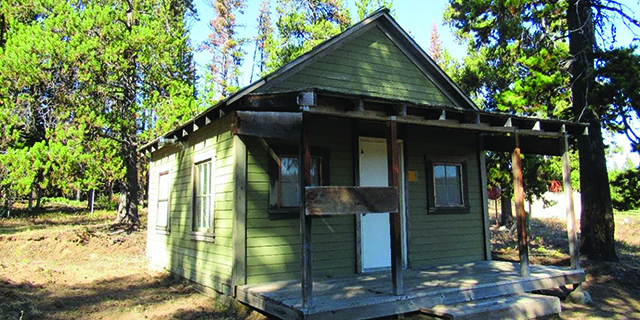Ford was the more credible witness
Published 11:33 am Tuesday, October 23, 2018
Keeping in mind that I am writing in a family-oriented newspaper, I will do my best to explain why I believe Dr. Christine Blasey Ford, rather than her alleged assailant – and our newest Supreme Court Justice – Brett Kavanaugh.
Like millions of other Americans, I watched every minute of Ford’s sworn testimony before the Senate Judiciary Committee on Sept. 27, as I also listened to all of Judge Kavanaugh’s statements and responses later that afternoon.
Trending
While Dr. Ford acknowledged that she was terrified to tell her story in such a public forum, she went on nevertheless to give her account of what she claims occurred in the summer of 1982, when she was 15 and Brett Kavanaugh and his friend Mark Judge were 17.
I will not recount the specifics of the alleged incident, in deference to our readers, except to note that Dr. Ford was unshakable in her recollection of certain aspects of the event, while she also admitted haziness in her memory about other details, such as the specific location of the house where the get-together occurred.
Experts in trauma say that some memories of an event are likely to remain vivid for decades while other particulars will fade – just as most old memories do. But it is also worth noting that Dr. Ford voluntarily submitted to and passed a polygraph exam about her allegation, and that the examiner rated the likelihood of her being deceptive as less than 1 percent.
In contrast, Judge Kavanaugh dismissed polygraph exams as unreliable – a viewpoint that directly contradicted one of his own rulings in a court case in 2016, in which he called polygraphs “an important law enforcement tool … to test the credibility of witnesses.”
In her Senate testimony, Ford was cooperative and candid. She never raised her voice or responded with any animosity, either to Democrats or Republicans, or to Rachel Mitchell, the prosecutor hired by Republicans to cross-examine her and Judge Kavanaugh.
On the other hand, Judge Kavanaugh shouted his opening statement at the committee, until he dissolved into sobs as he recollected the peculiar fondness that he and his father shared for keeping detailed calendars.
Trending
To say that Kavanaugh displayed none of the characteristics that one would expect of a judge even in a traffic court – such as impartiality and temperance – would be to criticize his performance mildly. At various moments, he was hostile, angry, evasive, sarcastic, partisan and rude.
Because the memories of the alleged incident were in sharp dispute, many questions centered on Kavanaugh’s drinking habits when he was 17 and during his college years. In answer to the simple question posed by Mitchell as to what he considered “too many beers,” Judge Kavanaugh stammered, “Uh, you know, whatever the chart says, uh, the blood alcohol chart.”
When Mitchell pressed the question about whether he had ever passed out from drinking, Kavanaugh replied, “Passed out would be no, but I’ve gone to sleep.” Hmm … A subtle distinction, at best.
Several of his college acquaintances offered to tell the FBI and the Senate much more about Kavanaugh’s excessive drinking habits. Even Mark Judge described a “Bart O’Kavanaugh” in his book, “Wasted: Tales of a Gen-X Drunk,” as a guy who threw up in someone’s car and “passed out on his way back from a party.”
When Kavanaugh was asked by Senator Patrick Leahy whether he was that same “Bart O’Kavanaugh,” the nominee replied coyly, “You’d have to ask him.” But Kavanaugh knew that the Republican-controlled committee would never allow Mark Judge to testify.
Some readers might wonder why a high school or college student’s drinking habits should matter 36 years later, or why they should have any bearing on his fitness for the Supreme Court. The central reason is that if Brett Kavanaugh and Mark Judge drank to the point of memory lapses –– which seems highly probable –– then their recollection of events should be trusted much less than Ford’s.
Subsequent to the Senate hearings, at the insistence of Senate Democrats and Republican Jeff Flake, the FBI conducted a follow-up investigation into some of the claims against Judge Kavanaugh. Senate Republicans and President Trump have kept that report closely guarded, and the public will probably never know its contents.
But if the Democrats win back the House in November, expect this investigation to be reopened, especially regarding the serious question of whether Judge Kavanaugh might have committed perjury during his answers to the Senate Judiciary Committee.
John McColgan writes from his home in Joseph.









